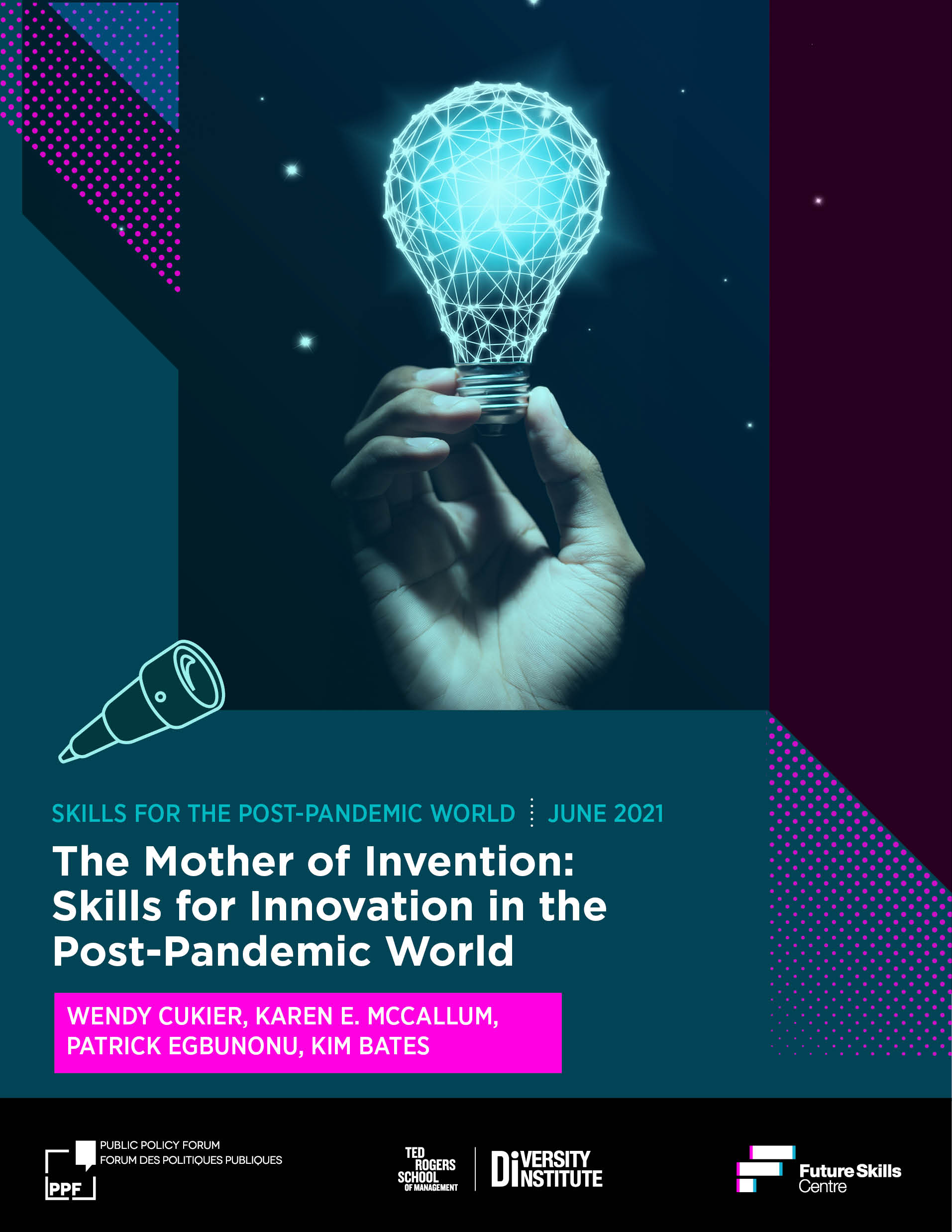
The Mother of Invention: Skills for Innovation in the Post-Pandemic World
Series | Skills for the Post-Pandemic WorldKey Takeaways
- Research suggests 50 percent of the workforce will need to reskill within the next five years due to the double disruption of the pandemic and the increasing technological automation that had already been transforming work even before anyone had ever heard of COVID-19.
- In spite of massive public investments in research and development, and one of the best-educated workforces in the world, Canada’s innovation performance has been a cause for concern for some time. Clear gaps exist at the macro, meso and micro levels of the innovation ecosystem that need to be filled for Canada’s innovation record to improve.
- Studies show that while impressive initiatives with promising outcomes abound within Canada’s innovation ecosystem, competition for scarce resources and a lack of co-ordination among organizations creates fragmentation and duplication of effort, and limits opportunities for sharing across institutions, jurisdictions and sectors.

EXECUTIVE SUMMARY
Much has been made of the negative effects the COVID-19 pandemic has had on the economy, and the disruption, upheaval and chaos created among the workforce when the world was forced to shut down en masse. But the pandemic has also fueled a surge in innovation, as necessity forced businesses, governments and individuals to find ways to adapt. Not only has it driven the creation of new technologies, it has driven the development of new products and services, changes in processes, the development of new business models, and even shifts in the approach to work itself.
Yet much still needs to be done to ensure that Canada can keep pace with the accelerating rates of change that characterize today’s economy and society, to say nothing of building sufficient resilience to overcome the current pandemic and prepare for similar future shocks. Canada has among the highest rates of investment in education and research and development (R&D), but these investments are not translating into the desired improvements to productivity, successful technological commercialization, or increases in GDP.
If innovation is the key to our economic prosperity, Canada’s skills strategy must address the skills needed for innovation across sectors – from small and medium-sized businesses to large corporations and even within government itself.In this context, this report explores:
- The definition of innovation and its connection to entrepreneurship and skills;
- The impact of the COVID-19 pandemic on innovation, particularly in small and medium-sized enterprises; and
- The implications for the definition, assessment, development and utilization of skills.
Prior to the pandemic, the innovation discourse was defined by fairly narrow understandings of innovation and a disproportionate focus on the technology sector. This preoccupation with the tech sector, tech innovation and highly skilled tech job creation has had the unintended consequence of excluding large segments of the economy and society from the innovation conversation.
The arrival of COVID-19 has highlighted the importance of new business models, new ways of working, new ways of marketing and distributing, the critical importance of supporting technology adoption – and the skills needed to support this adoption – as well as the creation of new technologies. In other words, we need to think more broadly about both what constitutes innovation and about the skills required to enable it.The arrival of COVID-19 has not only highlighted the critical importance of specific skills for specific roles that have changed or expanded, but also the skills needed to anticipate and respond to shocks to the system. Among these skills are those needed to continue to transform both the public and private sectors, to create and scale entrepreneurial ventures and to create and implement new strategies and new business models.
At the same time, there is a need to support strategic initiatives that aim to improve access to training and decent work opportunities for all Canadians to capture their innovative potential. In this context, assessing and consciously addressing skills gaps has become more important than ever, particularly the skills needed to continue to promote and consolidate gains from innovation in digital workplaces. New working arrangements have created massive challenges for some and new skills are needed among both employers and employees to navigate these new arrangements, as it is clear that a return to normal may not mean a return to the office as it existed before the pandemic.
Thank you to our partners
Skills for the Post-Pandemic World series is funded by the Government of Canada’s Future Skills Program
With support from












